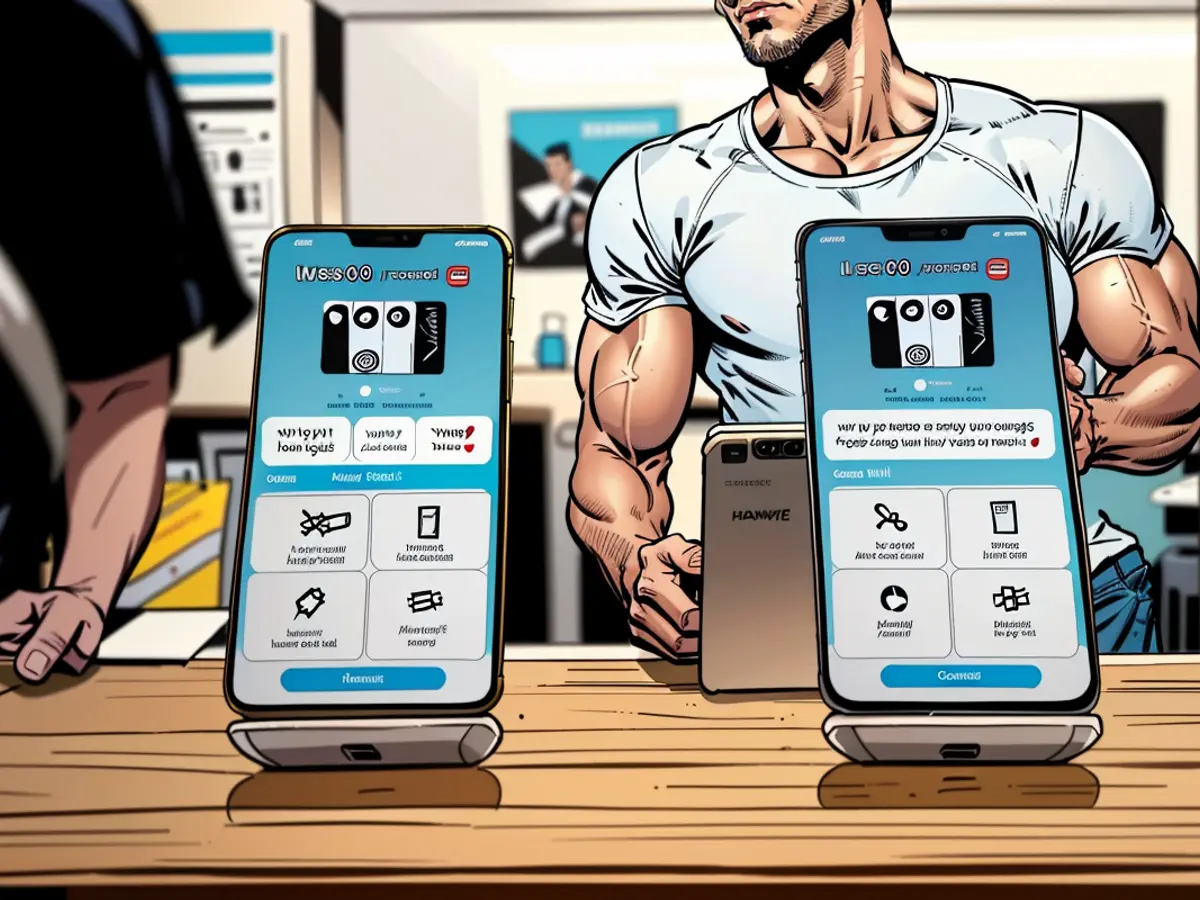Huawei has not only resurfaced but is now a powerful contender to be dealt with.
The Chinese behemoth, embroiled in the intensifying feud between Washington and Beijing, announces that over 900 million smartphones now utilize its in-house operating system, Harmony OS.
"In a span of 10 years, we've managed what our European and American counterparts achieved in over 30 years, and we've attained autonomous control over the core technology of the operating system," Richard Yu, chairman of Huawei's consumer business group, declared during a developer conference on Friday.
Initially introduced in 2019, Harmony, known as "Hongmeng" in Chinese, was publicized after Huawei was added to a US trade blacklist prohibiting American firms from selling tech and software to the Chinese tech firm without a permit.
US policymakers have long maintained that Huawei poses a national security risk, asserting that the Chinese government could exploit the company's equipment for spying. The company consistently denied these allegations, but this didn't deter some American allies, like the UK, from limiting Huawei's role in erecting 5G networks.
The US ban prevented firms like Google (GOOGL) from providing new Huawei devices with their version of Android OS. These restrictions severely hampered the Chinese firm's smartphone aspirations at the time, with some analysts predicting the Huawei phone would become "a brick."
Now, the company is regaining its momentum. It's also exploring new ventures. Last year, it introduced an electric sedan to contend with Tesla's Model S. The company also harbors grand plans in artificial intelligence (AI).
Nvidia (NVDA), running neck and neck with Microsoft (MSFT) as the most valuable public company in the world, earlier this year named Huawei a formidable competitor in several areas, including in the production of processors that power AI systems.
Yu stated on Friday that Huawei's own AI framework, comprised of its Ascend processors, was 1.1 times more effective in training large language models compared to mainstream international offerings. He failed to name the competitors.
An unexpected advancement
However, it's in smartphones where the resurgence is most evident. Sales of Huawei's flagship smartphones rose 72% in the first five months of 2024 compared to the same period the previous year, as per Yu, illustrating the company's determination to reclaim its position at the top despite stringent US restrictions.
The Shenzhen-based conglomerate's popular Mate 60 Pro smartphone grabbed headlines last year when the US government sought further information about the model, which boasted a sophisticated processor.
Its unveiling surprised industry experts who pondered how the company managed to acquire such chips following extensive efforts by the US to limit China's access to foreign chip technology due to national security concerns.
The company's net profit skyrocketed 564% to $2.71 billion in the first quarter, and this impressive surge comes after it recorded its fastest revenue growth in four years in 2023, thanks to a rejuvenation in its consumer segment and income from new businesses like smart car components.
Huawei is also gunning for another of the biggest companies in the world. The success of its smartphones in China directly impacted Apple (AAPL) in the premium sector, according to data from Counterpoint Research in April.
The iPhone maker, which dominated China's smartphone market with an almost 20% share in the first quarter of 2023, slipped to third place in the first three months of this year, as per Counterpoint. Its market share stood at 15.7%, while Huawei's climbed to 15.5%, from 9.3% in 2023.
Sales of the iPhone restarted recovering in May, following aggressive price cuts in its largest overseas market.
Read also:
Huawei's innovative Harmony OS, an in-house operating system, has seen significant adoption in the tech sector, with over 900 million smartphones now utilizing it. In a bid to diversify its business, Huawei also announced plans to enter the electric vehicle market, aiming to compete with tech giants like Tesla.








